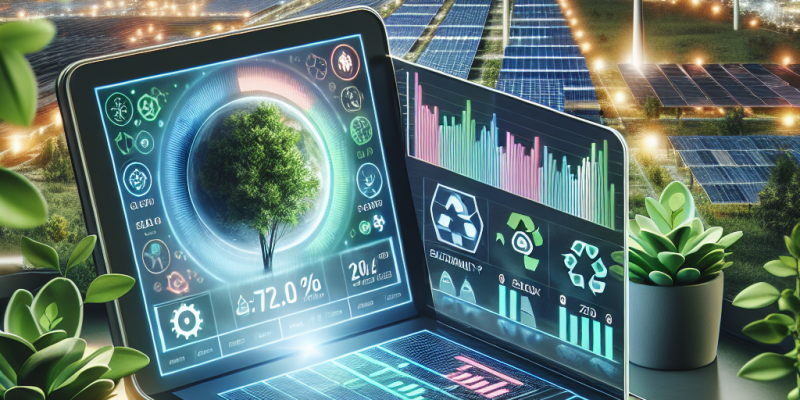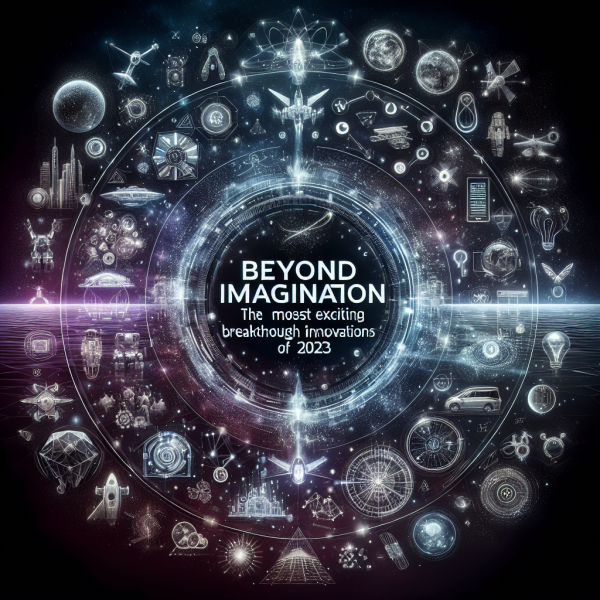The Intersection of Tech and Sustainability: Market Insights for Eco-Innovators

In recent years, the intersection of technology and sustainability has emerged as a dynamic and transformative space, creating numerous opportunities for eco-innovators. As global awareness around environmental challenges intensifies, the demand for innovative tech solutions to address these issues has surged. This article delves into market insights that highlight the trends, opportunities, and developments at this critical junction, spurring the next wave of eco-innovation.
Understanding the Landscape: Trends in Tech and Sustainability
-
Rise of Renewable Energy Technologies: The shift towards renewable energy sources—such as solar, wind, and hydropower—has gained unprecedented momentum. Innovations in solar panel efficiency, energy storage technologies (like advanced batteries), and smart grid solutions are paving the way for a more sustainable energy landscape. Eco-innovators in this field are not only contributing to carbon reduction but are also participating in a rapidly growing market.
-
IoT and Smart Resource Management: The Internet of Things (IoT) is revolutionizing how we track and manage natural resources. Smart sensors and devices are being developed to monitor water usage, air quality, and waste management in real time, leading to more efficient and sustainable practices. Companies utilizing IoT technologies can provide actionable insights that help organizations reduce their ecological footprints.
-
Sustainable Agriculture: AgriTech innovations are transforming the agriculture sector, with a focus on sustainable practices. Precision agriculture, vertical farming, and the use of biopesticides and bio-fertilizers are just a few examples where technology meets sustainability. Startups in this space are not only enhancing food production but also reducing the environmental impact of farming.
-
Circular Economy Platforms: The concept of a circular economy—which emphasizes reusing, recycling, and repurposing materials—is gaining traction. Technological platforms that facilitate the tracking and trading of recyclable materials, as well as those that promote upcycling, are attracting attention from eco-innovators. The growth of sharing economies, such as car-sharing and co-working spaces, also exemplifies this trend.
- Green FinTech: Financial technology is playing a crucial role in promoting sustainability. Green bonds, impact investing platforms, and sustainable banking solutions are empowering eco-conscious investors to support environmentally-friendly projects. Eco-innovators in this sector need to stay informed about financial trends and seek collaborations that promote green practices.
Opportunities for Eco-Innovators
As the interplay between technology and sustainability grows, so do the opportunities for innovative thinkers:
-
Investment and Funding: The surge in eco-conscious consumer behavior and governmental support for sustainable initiatives has attracted significant investment in eco-startups. Eco-innovators should actively seek out venture capital, crowdfunding, and public grants that are specifically geared toward sustainability-focused projects.
-
Collaboration with Corporates: Major corporations are increasingly focused on sustainability as part of their corporate social responsibility (CSR) strategies. Eco-innovators have the chance to partner with these businesses to develop and implement sustainable solutions. Collaborations can lead to scale and broader impact, especially for emerging technologies.
-
Data-Driven Solutions: Utilizing big data and analytics enables eco-innovators to fine-tune their operations and achieve greater efficiency. By leveraging data, businesses can identify patterns, make informed decisions, and optimize resource use—ultimately leading to reduced costs and enhanced sustainability.
-
Consumer Engagement: Eco-conscious consumers are more informed than ever, actively seeking products and services with sustainable credentials. Eco-innovators have the opportunity to engage this demographic by telling their sustainability stories, creating transparent supply chains, and developing eco-friendly products that resonate with consumer values.
- Policy and Regulatory Support: Governments worldwide are introducing policies and regulations aimed at combating climate change and fostering sustainable development. Eco-innovators can seize opportunities that arise from these initiatives, such as subsidies for green technologies and incentives for reducing carbon emissions.
Overcoming Challenges
While the intersection of tech and sustainability offers vast opportunities, eco-innovators must also navigate challenges:
-
Market Competition: The growing interest in sustainable solutions has led to increased competition. Eco-innovators need to differentiate themselves through unique value propositions and effective marketing strategies.
-
Technological Barriers: Developing cutting-edge technology comes with its own set of challenges, including high R&D costs and the need for continuous innovation. Collaborating with research institutions and technology incubators can alleviate some of these hurdles.
-
Consumer Education: Despite the trend toward sustainability, some consumers may still prioritize price over sustainability. Eco-innovators need to invest in educating consumers on the long-term benefits of sustainable products to shift this paradigm.
- Scalability: Developing a viable business model that can scale sustainably is crucial. Eco-innovators should strategically plan their scaling processes to ensure that growth does not come at the expense of their environmental values.
Conclusion
The intersection of technology and sustainability presents a vibrant ecosystem brimming with opportunities for eco-innovators. By staying attuned to market trends, leveraging technological advancements, and embracing collaboration, these innovators can drive meaningful change while capitalizing on new business prospects. As the world continues to prioritize sustainable practices, those who are bold enough to innovate will undoubtedly find pathways to success that benefit both the planet and their bottom lines.














